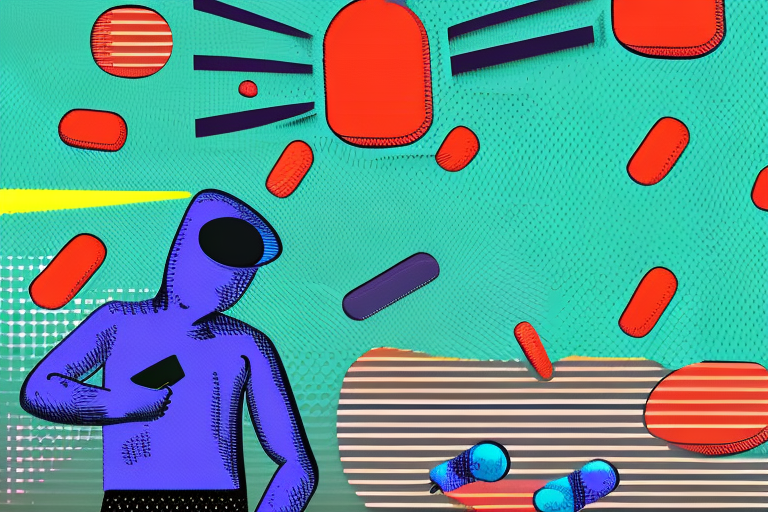Starting a conversation about addictions, it is impossible not to mention a condition that is both a marker of addiction and a substrate for its development.
Below I will not touch on the withdrawal of medications or “psychological withdrawal” within the framework of interpersonal relationships. It will be exclusively about addictive substances. Yes, it’s about alcohol and nicotine too.
Withdrawal refers to a group of symptoms that can occur when a person suddenly stops using a substance that they have been addicted to. This addiction can be mental, physical, or a composite of the first two.
The symptoms of withdrawal vary depending on the substance being used and can range from mild to severe. When it comes to withdrawal, narcotic substances are immediately recalled, but in fact, withdrawal manifests itself with almost all substances that have long-term contact with our central nervous system and mechanisms of reward.
How and why?

In general, withdrawal symptoms can occur as a result of changes in the levels of neurotransmitters in the brain. Neurotransmitters are chemicals that are involved in transmitting signals between nerve cells. Among them, it is worth mentioning:
- Monoamines – Serotonin, Dopamine, Norepinephrine, Histamine;
- Amino acids – Gamma-aminobutyric acid (GABA), Glutamic acid (Glutamate);
- Others (Acetylcholine, Endocannabinoids, Taurine, etc.
When a person uses a substance that they are dependent on, the brain adjusts to the presence of the substance by changing the levels of certain neurotransmitters. When the person then stops using the substance, the brain is no longer able to function in the same way, leading to the symptoms of withdrawal. This is a very simplistic and superficial explanation, but this is how it happens in its purest form.
For example, chronic alcohol use can lead to changes in the levels of neurotransmitters such as GABA and Glutamate, which keep the operation of many functions, including mood and anxiety. When a person with alcohol dependence stops drinking, the brain may not be able to produce enough of these neurotransmitters, leading to symptoms such as anxiety, tremors, and seizures.
It is not clear if withdrawal syndrome has a specific evolutionary or physiological role. Withdrawal symptoms are a consequence of the brain’s adaptation to the presence of a substance, and they can be seen as a protective mechanism to prevent the person from continuing to use the substance in harmful amounts.
Hazard

However, withdrawal symptoms can also be uncomfortable and even dangerous, and they are not necessarily beneficial from a physiological standpoint. In some cases, withdrawal symptoms can be so severe that they require medical intervention.
It is difficult to say which substances have the most dangerous withdrawal syndromes, as the severity of withdrawal symptoms can vary depending on the individual`s health conditions and degrees of ill health. In general, withdrawal from substances that have a high potential for addiction, such as alcohol and opioids, can be more dangerous than withdrawal from other substances. But in real life withdrawal from any substance can be dangerous.

Thi is part of the table from the article “Development of a rational scale for assessing the harm of drugs that can be abused”. David Nutt, Leslie King, William Salisbury, Colin Blakemore. The Lancet, Volume 369, March 24, 2007
Withdrawal from opioids and alcohol can cause severe symptoms and can even be life-threatening. Symptoms of alcohol withdrawal can include tremors, hallucinations, and seizures, while symptoms of opioid withdrawal can include nausea, vomiting, and abdominal pain. In both cases, medical supervision is strongly recommended to ensure the safety of the individual going through withdrawal.
It is really important to seek medical advice before attempting to stop using a substance that you are dependent on, as sudden cessation can be dangerous.
Liberation

The general rule for relieving withdrawal symptoms is to seek medical advice and assistance. Withdrawal symptoms can be uncomfortable and even dangerous, and it is important to have professional support when going through withdrawal. In some cases, a doctor may prescribe medications to help manage withdrawal symptoms and make the process safer and more comfortable.
It is also important to have support from family and friends during withdrawal. A supportive environment can help to reduce stress and make the process of withdrawal easier. It may also be helpful to seek support from a support group or addiction counselor.
I think we all need to remember that everyone’s experience with withdrawal is different and that people in this condition really need and will really help with any support.

That’s all for today.
If you think that something needs to be added or corrected here, write to me. I am always glad to dialogue.
I hope the article was helpful. Please support the development of this blog:
- Subscribe to my social networks.
- Share a link to this article with your friends.
- Tell about the blog on thematic resources or in chats.
Thank you for your time and attention 🌿
Synopsis of Drug Withdrawal




